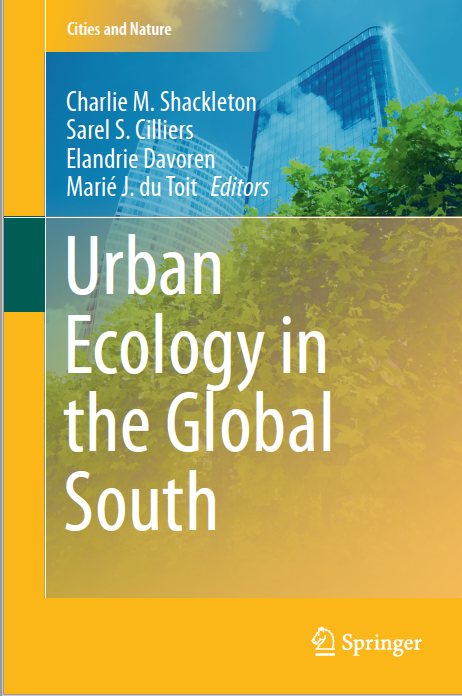
Towards Equitable Urban Resilience in the Global South Within a Context of Planning and Management
Author(s): Sitas, N., Selomane, N., Hamann, M. and Gaudier, S.Link to CST author(s):
Publication: Urban Ecology in the Global South
Year: 2020
Full reference: Sitas, N., Selomane, N., Hamann, M. and Gaudier, S. 2021. Towards Equitable Urban Resilience in the Global South Within a Context of Planning and Management. In: Shackleton, C., Cilliers, S.S., Davoren, E., and du Toit, M.J.(Eds.) Urban Ecology in the Global South
Summary
Over the last decade, the need to advance urban resilience research and practice has been emphasised, especially for safeguarding important ecosystem services that are critical for human wellbeing in and around cities. The pace and scale of changes in the Anthropocene make this imperative even more pressing, especially within the context of rapid urbanisation, infrastructure deficits and rising inequalities in the Global South. In this chapter, we contribute to these advances by highlighting the value of taking a social-ecological resilience approach to understanding the contested nature of urban resilience from multiple perspectives. We discuss important principles for exploring and building resilience and how these principles can be used within the context of urban resilience using two examples from the Global South. This chapter also outlines how an intersectionality approach can advance conceptualisation and implementation of resilience by focusing explicitly on how power mediates certain relationships and interdependencies in socialecological systems. Foregrounding the role of power can assist with better understanding the opportunities for adaptation and transformation and ‘putting the last, first’ in resilience research and practice. We conclude by exploring some key gaps, blindspots and opportunities for a research-action agenda for urban resilience going forward.

